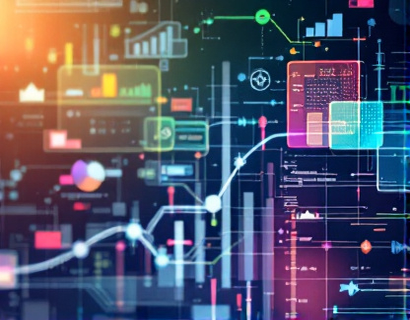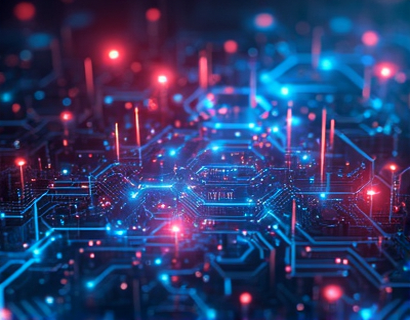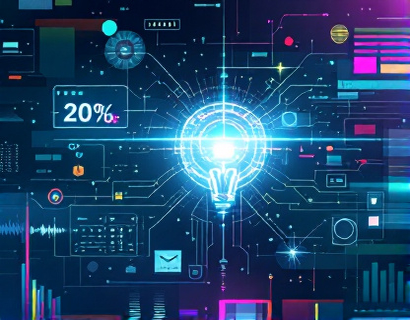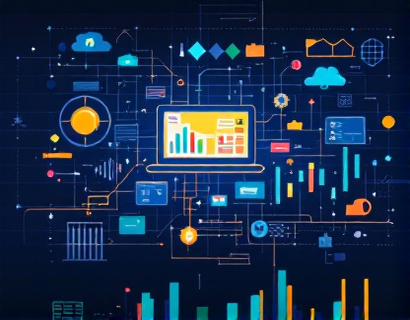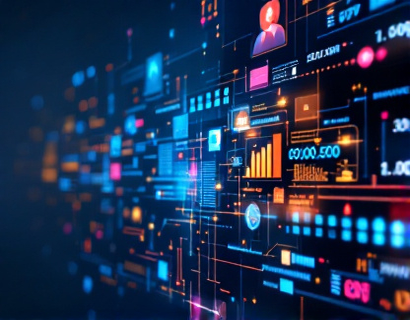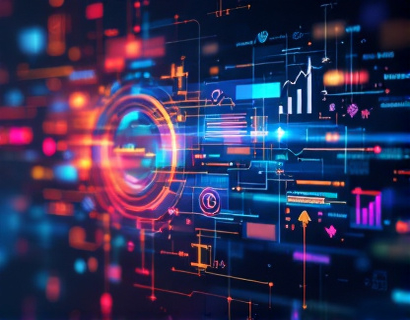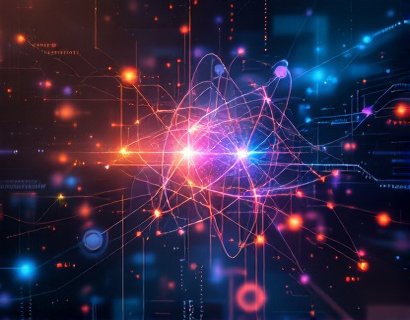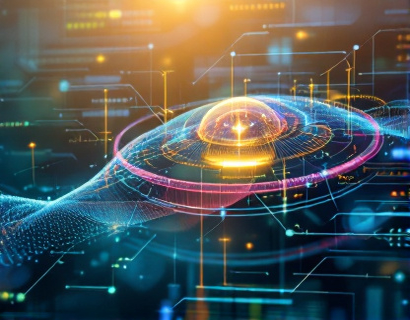Maximizing Productivity in the Digital Age: Harnessing AI and Crypto for Innovative Solutions
In the rapidly evolving digital landscape, professionals and early adopters are constantly seeking ways to enhance productivity and stay ahead of the curve. The integration of Artificial Intelligence (AI) and cryptocurrency offers a promising avenue for unlocking new levels of efficiency and innovation. This article delves into advanced solutions that leverage these technologies to redefine task management and workflow optimization, providing tech-savvy individuals with actionable insights and strategies.
Understanding the Synergy Between AI and Cryptocurrency
The convergence of AI and cryptocurrency is a powerful combination that can drive significant advancements in various sectors. AI, with its ability to process vast amounts of data and learn from patterns, can optimize complex processes and automate routine tasks. Cryptocurrency, on the other hand, provides a decentralized and secure means of transaction, enabling new economic models and fostering innovation. Together, these technologies can create a synergistic effect that enhances productivity and opens up new opportunities for tech enthusiasts and professionals.
AI-Powered Task Management Tools
One of the most immediate ways AI is impacting productivity is through task management tools. These tools use machine learning algorithms to predict task priorities, automate reminders, and even suggest optimal times for task execution based on user behavior and calendar data. For instance, AI-driven task managers can analyze a user's past performance and propose a customized schedule that maximizes focus and efficiency. This not only saves time but also reduces the cognitive load associated with manual planning and organization.
Smart Contracts and Automated Workflows
Cryptocurrency's most transformative feature for productivity is the use of smart contracts. Smart contracts are self-executing contracts with the terms of the agreement directly written into code. In a professional context, smart contracts can automate various business processes, from payment transactions to project milestones. For example, a smart contract can be programmed to release payment to a freelancer once the delivered work meets predefined quality standards. This automation reduces the need for intermediaries, speeds up processes, and minimizes the risk of disputes.
Decentralized Productivity Platforms
Decentralized platforms powered by blockchain technology are redefining how work is managed and rewarded. These platforms use cryptocurrency to incentivize contributions and ensure transparency in transactions. For instance, decentralized task marketplaces allow users to post and complete tasks without the need for a central authority. Workers are paid in cryptocurrency, and the system ensures that all transactions are recorded on a public ledger, providing a high level of trust and accountability. This model not only enhances efficiency but also empowers individuals by giving them direct control over their work and earnings.
Enhanced Data Analytics and Insights
AI's strength lies in its ability to analyze large datasets and extract meaningful insights. In a productivity context, this means that businesses and individuals can gain a deeper understanding of their work patterns, identify bottlenecks, and optimize their processes accordingly. AI-driven analytics tools can track project progress, monitor team performance, and provide actionable recommendations for improvement. For example, by analyzing time spent on different tasks, AI can suggest ways to streamline workflows and allocate resources more effectively.
Personalized Learning and Development
Continuous learning is crucial for staying competitive in the digital age. AI-powered platforms can offer personalized learning paths tailored to an individual's skills, interests, and career goals. By analyzing a user's performance data and industry trends, these platforms can recommend relevant courses, articles, and resources. Additionally, AI can facilitate peer learning and mentorship by connecting users with experts in specific fields. This personalized approach to learning ensures that professionals can continuously upskill and adapt to new technologies and methodologies.
Cryptocurrency for Decentralized Funding and Investment
Cryptocurrency is not only a medium of exchange but also a tool for decentralized funding and investment. Platforms like Initial Coin Offerings (ICOs) and Initial Debt Offerings (IDOs) allow startups to raise capital directly from investors without the need for traditional financial intermediaries. For productivity-focused projects, this means access to a global pool of investors who are interested in innovative solutions. Additionally, decentralized finance (DeFi) platforms offer lending and borrowing services with lower fees and higher accessibility, enabling businesses to fund their growth and development more efficiently.
Security and Privacy in AI and Crypto Integration
While the integration of AI and cryptocurrency offers numerous benefits, it is essential to address the concerns around security and privacy. Both technologies handle sensitive data, and ensuring the protection of this data is paramount. AI systems must be designed with robust security protocols to prevent data breaches and unauthorized access. Similarly, cryptocurrency transactions should be secured using advanced cryptographic techniques to safeguard user funds. By prioritizing security and privacy, users can trust these technologies to manage their critical data and financial transactions.
Case Studies and Real-World Applications
To better understand the practical applications of AI and cryptocurrency in enhancing productivity, let's look at a few real-world examples. A tech company implemented an AI-driven project management tool that integrated with their cryptocurrency-based reward system. The tool not only automated task assignments and progress tracking but also incentivized high performance with cryptocurrency rewards. The result was a significant increase in team productivity and job satisfaction. Another example is a decentralized content creation platform that uses AI to curate and monetize user-generated content through blockchain-based tokenization. Creators are rewarded in cryptocurrency based on engagement metrics, fostering a vibrant and motivated community.
Future Trends and Innovations
The future of AI and cryptocurrency in productivity is promising, with several emerging trends worth noting. One such trend is the development of AI-powered virtual assistants that can operate on blockchain networks, providing secure and transparent assistance to users. These assistants can manage schedules, handle communications, and even negotiate contracts on behalf of users. Another trend is the integration of AI with Internet of Things (IoT) devices, where cryptocurrency can serve as a means of payment for smart device services. This convergence can lead to highly automated and efficient smart environments.
Conclusion
By embracing the synergy between AI and cryptocurrency, professionals and early adopters can unlock new levels of productivity and innovation. AI-driven tools and decentralized platforms offer powerful solutions for task management, workflow optimization, and continuous learning. As these technologies continue to evolve, the potential for enhancing productivity and driving meaningful change in the digital age is immense. By staying informed and adaptable, individuals and businesses can harness the full potential of AI and cryptocurrency to achieve their goals and stay ahead in a rapidly changing world.





